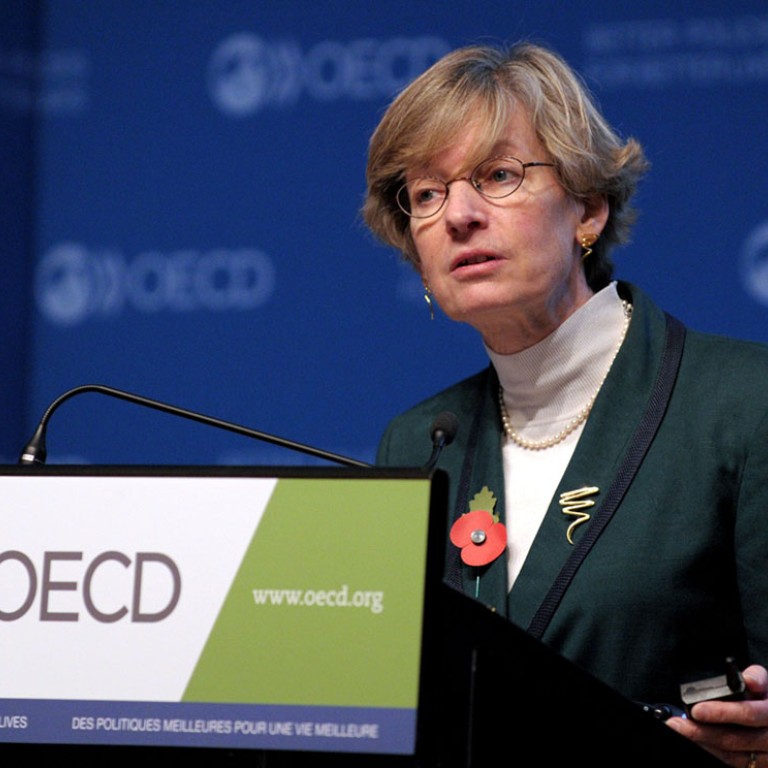
OECD sees only gradual US-led recovery amid euro zone woes
Paris-based body says euro zone woes and weak emerging countries will weigh down growth and calls on ECB to fulfil its promises
The global economy is only gradually picking up momentum as stagnation in the euro zone and growing weakness in some big emerging economies weighs on the US-led recovery, the OECD said yesterday.
With the euro zone a stubborn weak spot in the global economy, the Paris-based Organisation for Economic Cooperation and Development called on the European Central Bank to live up to a promise "to do what ever it takes" to revive its economy.
The OECD updated its outlook before a summit next week in Australia of leaders from the Group of 20 economic powers. It said it would provide a more complete outlook and analysis on November 25.
Marginally trimming estimates dating from May, the OECD forecast that world economic growth would accelerate from 3.3 per cent this year to 3.7 per cent next year and 3.9 per cent in 2016.
"The global economy is continuing to run in low gear," OECD chief economist Catherine Mann said. "Even though we are looking at global growth to increase up to 3.9 per cent by the end of 2016, that still leaves us about a half a percentage point below our historical experience."
The OECD forecast the US economy would see growth speed up from 2.2 per cent this year to 3.1 per cent next year as an improving job market gave private spending a boost.
Firming US growth warranted a gradual increase in the US Federal Reserve's interest rates from the middle of next year, the OECD said, warning however that increases could trigger turbulence in emerging markets.
The improving US outlook contrasted sharply with the euro zone, which was forecast to see growth of only 0.8 per cent before accelerating to 1.1 per cent next year despite a slower pace of belt-tightening in many countries.
With the euro area at risk of a "prolonged period of stagnation", the OECD called on the ECB to launch a full-scale US-style quantitative easing drive.
Turning to Japan, the OECD said the Bank of Japan should push ahead with its exceptional monetary stimulus, which was stepped up last week, until inflation is higher permanently.
With ultra-loose monetary policy seen weakening the yen and thus boosting exports, the OECD forecast the Japanese economy would accelerate from growth of 0.9 per cent this year to 1.1 per cent next year.
Amid reports a planned sales tax increase next year may get postponed, Mann recommended sticking to the plan as it would encourage consumers to bring forward spending.
Among major emerging economies, the OECD estimated the mainland's growth would slow from 7.3 per cent this year to 7.1 per cent next year as it rebalances towards more service-sector-focused growth from an export-dominated economy.
But the outlook diverged widely among big emerging economies that have driven growth until recently, with commodity-focused countries suffering as prices fall.
Brazil's economy was seen growing only 0.3 per cent this year before rising to 1.5 per cent next year, while growth in sanctions-hit Russia was expected to fall from 0.7 per cent to zero.

